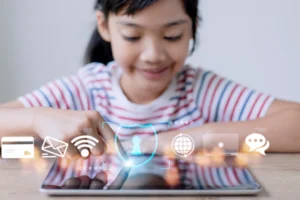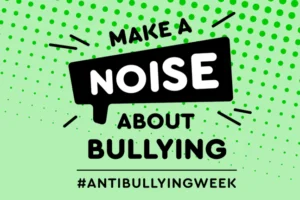What the iRights initiative means for children, parents and the tech companies…
For over a year now, the Internet Matters team has been on a mission to get parents educated about technology to ensure children are getting the right support and advice as they navigate the digital world.
We believe in the positive power of the Internet, and actively encourage digital education and adventure for people of all ages and all walks of life. But we want them to do that in an environment that’s safe and secure.
So, we were delighted to be a part of the recent iRights initiative, backed by Baroness Kidron and Baroness Shields, Minister for Internet Safety and Security.
iRights five-step framework
This five-step framework of digital rights empowers young people to access technology “creatively, knowledgeably and fearlessly”:
The right to remove – every child and young person should have the right to easily edit or delete all content they have created.
The right to know – children and young people have the right to know who is holding or profiting from their information, what their information is being used for and whether it is being copied, sold or traded.
The right to safety and support – children and young people should be confident that they will be protected from illegal practices and supported if confronted by troubling or upsetting scenarios online.
The right to informed and conscious choices – children and young people should be empowered to reach into creative places online, but at the same time have the capacity and support to easily disengage.
The right to digital literacy – to access the knowledge that the Internet can deliver, children and young people need to be taught the skills to use, create and critique digital technologies and given the tools to negotiate changing social norms.
Surely, as adults here to inspire and empower the next generation, we can all agree to these principles?
Instant access to technology – and being safe, confident and free to explore online – has arguably become a fundamental human right. And, for me, that makes the iRights initiative as significant as the creation of the education-for-all Acts at the turn of the last century, and the UN Convention on the Rights of the Child 25 years ago.
The biggest challenge, however, is how to implement it.
Next step for iRights
As well as Internet Matters, iRights is supported by numerous well-known organisations. From charities such as UNICEF and Save the Children, to commercial companies such as Barclays and Sky.
The next step for iRights is to get the Internet giants of the West Coast to sign up; their support would make iRights a reality for children.
With Mind Candy and Mozilla already as iRights signatories, there is clearly a shift towards recognising the rights of a child, and with their backing, the iRights initiative can deliver on its promise of enabling real control over an individual child’s digital life.
But at the heart of this issue remains education and engagement – from parents, to teachers, Ministers to business leaders.
Educating adults to make informed decision on how to protect children online
That’s why we at Internet Matters are focused on educating adults about technology, so they can make their own informed decisions about how to protect their children in the digital world, just as they do in the physical one.
Of course, the most important thing for children to do is make sure that they don’t post personal pictures of – or information about – themselves that they then have to remove in the first place. But in a world where we all make mistakes, having iRights for teens is an essential step in acknowledging the role technology plays in 21st-century life.
Quite simply, as well as espousing the wonders of the Internet, we must also ensure we are clear on the consequences of over-sharing and over-exposing.
With or without iRights, children need to be digitally enabled by an informed network of support around them who can educate, empower and advise.




